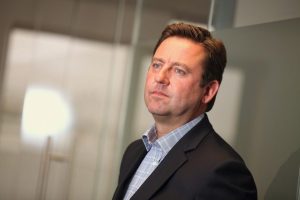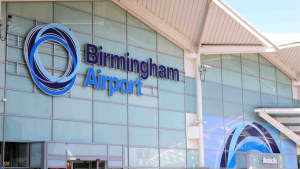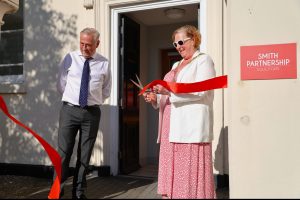Hardman: ‘Don’t recreate business support dinosaurs’
.jpg)
POLITICIANS and business groups should be careful not to recreate the failures of the past as they try to replace RDAs and several layers of business support, the boss of Birmingham Science Park Aston has warned.
Dr David Hardman said the extinction of AWM and Business Link, amongst others, had created a significant infrastructure vacuum, but in the absence of central direction, several groups were considering new co-ordinating bodies to fill the void.
He said: “The re-creators need to consider whether they are reviving activities that were at the top of the evolutionary tree, or were in fact more akin to dinosaurs; magnificent beasts that had their time, but are no longer fit for purpose. Just because business support initiatives appeared to work in the last decade, does not mean the same practices will deliver what is needed now or in the future.”
Last year, Dr Hardman warned that business support services risked being delivered via smaller geographical clusters – which he labelled ‘puddles’ – failing to connect small startup businesses in particular to global markets and investors.
He said: “We live in a global economy, in a city that espouses global aspirations; can local or regional initiatives truly drive world-class economic recovery?”
He added: “We also need to embrace the digital agenda by deed not just word. In economic terms, the first wave of destruction was wrought by the recession, but there is a second wave, a tsunami heading our way in the form of the fast-moving connected digital world. If we are not prepared; if we cannot exploit the opportunities that are carried on this wave, we will be swamped by it, to such an extent that Birmingham’s global aspirations could be left in ruin.
“We should take Greater Birmingham’s ambitions and place them in the context of global – not even national, let alone local – economies. We need to create new fit-for-purpose infrastructures, harnessing the best players. If they are local, fine, but otherwise we need to recognise our shortcomings and expand our horizons. Our fledgling start-up businesses need to connect with like-minded people, public and private sector bodies, with any gaps in knowledge, talent, or funding being filled from the global ocean.
“Planning such global partnerships from the outset drives new approaches and will differentiate the Birmingham offering from that of the rest of the UK. It blends city-centric lifestyles and choices with environmental drivers and the digital opportunities of the social evolution that sees the ‘Y-Generation’ interact in the way it does.
“The business support offerings required by high-tech start-ups need to address the fact young entrepreneurs do things in a different way to previous generations. They embrace a different definition of ‘place’; one driven by a sense of belonging, not a geographically bounded location. Of course, more established businesses also need help to continue to grow, so the current need is for a way of assisting businesses that is not just Y-generation centric, but provides a hybrid model. A model which we are forging with our Science Park Without Walls initiative.”
David Hardman added: “This ground-breaking BSPA initiative was derived from our work with Cisco which promotes a community-based, rather than a location-based approach. It represents a true hub-and-spoke model where centres of creativity in cities around the UK and across the world co-operate to promote economic growth. At the Greater Birmingham level this provides a blueprint for a new and relevant business support offering.
“The eight Science Parks and ten innovation/incubation centres in and around Greater Birmingham already provide support services to all of the sectors identified as having growth potential in this sub-national area. By using the national and global connectivity offered by the Science Park Without Walls linkages, we can access world-leading support and international equity finance.
“I believe we must join up the effective business support networks we already have, but do we actually need any new co-ordinating bodies? I suggest we just need to network the professionals working at the coal-face with the new companies of today, and link them directly into the LEP Boards.”







